#Benito Mussolini
Text
A high-profile Italian author has accused Rai of censorship after his antifascist monologue was abruptly stopped from being aired, in what he called the “definitive demonstration” of alleged attempts by Giorgia Meloni’s government to wield its power over the state broadcaster.
Antonio Scurati was due to read the monologue marking the 25 April national holiday, which celebrates Italy’s liberation from fascism, on the Rai 3 talkshow Chesarà on Saturday night.
But as he prepared to travel to Rome, he received a note from Rai telling him his appearance had been cancelled “for editorial reasons”.
Scurati is well known in Italy for his books about the dictator Benito Mussolini and the fascist period. The cancellation of his monologue provoked fierce reaction from Rai journalists, fellow authors and opposition leaders.
His speech referenced Giacomo Matteotti, a political opponent of Mussolini who was murdered by fascist hitmen in 1924, and other massacres of the regime. It also contained a paragraph criticising Italy’s “post-fascist” leaders for not “repudiating their neofascist past”.
“Undoubtedly, this is what infuriated them,” Scurati told the Guardian. “And also because of what I represent and maintain in my books … [that] there is a continuity between the fascism of Mussolini and the populist nationalists in Europe.”
The Rai director Paolo Corsini denied that the monologue had been censored, telling the Italian media that an investigation “of an economic and contractual nature” was under way, while implying that the speech was cancelled because of the “higher than expected” fee sought by Scurati.
Scurati said his fee had been agreed and the contract signed before the monologue was due to be broadcast. “The fee was perfectly in line with those paid to authors … It was the same as in the past, when there were no issues.”
In solidarity, Serena Bortone, who presents Chesarà, read out the monologue on the show. It has also been published in full by several Italian newspapers and websites.
Meloni, whose Brothers of Italy party has neofascist origins, came to power in October 2022 with a coalition including the far-right League and the late Silvio Berlusconi’s Forza Italia.
During the election campaign, Meloni said the rightwing parties had “handed fascism over to history for decades now”. However, Scurati claimed in his monologue that when forced to address fascism at historical anniversaries, Meloni has “obstinately stuck to the ideological line of her neofascist culture of origin”, for example by blaming the Mussolini regime’s persecution of the Jews and other massacres on Nazi Germany alone.
Meloni responded by publishing the speech on her Facebook page, while attacking Scurati and accusing the left of “shouting at the regime”.
“Rai responded by simply refusing to pay €1,800 (the monthly salary of many employees) for a minute of monologue,” she said. “I don’t know what the truth is, but I will happily publish the text of the monologue (which I hope I don’t have to pay for) for two reasons: 1) Those who have always been ostracised and censored by the public service will never ask for anyone to be censored. Not even those who think their propaganda against the government should be paid for with citizens’ money. 2) Because Italians can freely judge its content.”
Since coming to power, the Meloni government has been accused of increasingly exerting its power over Rai while edging out managers or TV hosts with leftwing views. The European Commission was last week urged to investigate the government’s alleged attempts to turn the broadcaster into a “megaphone” for the ruling parties before the European elections.
Meloni’s administration has also been accused of trying to influence other areas of the press and targeting journalists with legal action who criticise the government. A Brothers of Italy politician recently proposed toughening penalties for defamation, including jail terms of two to three years.
Elly Schlein, the leader of the centre-left Democratic party, said: “The Scurati case is serious; Rai is the megaphone for the government.” Carlo Calenda, the leader of the centrist Azione party, said: “Silencing a writer for saying unpleasant things about the government is simply unacceptable.”
Scurati said he has received solidarity from many authors and journalists who were otherwise afraid to speak out against the government.
“This episode is the definitive demonstration, as it has finally aroused the revolt of other writers, intellectuals and journalists who until now kept quiet,” he said. “This government launches violent personal attacks against you for speaking out, in my case [that] I asked for too much money.”
Follow us on Instagram, @calabria_mediterranea
#italy#italia#fascism#censorship#antonio scurati#rai#giorgia meloni#25 aprile#antifascism#mussolini#benito mussolini#history#historical revisionism#italian#italian government#italian politics#politics#serena bortone#fratelli d'italia#propaganda#far right#right wing extremism#public service#fascismo#antifascismo#governo meloni#censura#the guardian#italian tv#tv
103 notes
·
View notes
Text

Benito Mussolini = il Duce
Donald Trump = still Douché
Ridicule is a potent weapon. Don't neglect it around obnoxious MAGA relatives who spew crap during the holidays.
#donald trump#benito mussolini#adolph hitler#fascism#nazism#dictatorship#vermin#hate speech#trump's second term#maga#republicans#el douché#election 2024#republican presidential nomination#david horsey
37 notes
·
View notes
Photo

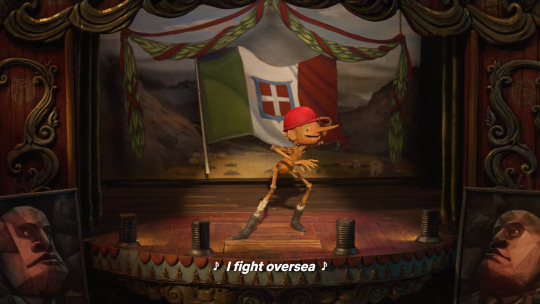




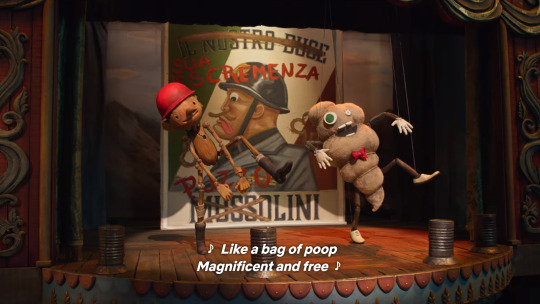




#pinocchio#guillermo del toro's pinocchio#pinocchio 2022#netflix pinocchio#Guillermo Del Toro#stop motion#netflix#benito mussolini#mussolini#fascism#screencap#long post#gdt pinocchio
320 notes
·
View notes
Text
« Je crois que les peuples… s’ils veulent vivre, doivent déployer une certaine volonté de puissance ; autrement, ils végètent, vivotent et seront la proie d’un peuple plus fort qui aura développé davantage en lui-même cette volonté de puissance ».
— Benito Mussolini, Discours au Sénat (28 mai 1926)
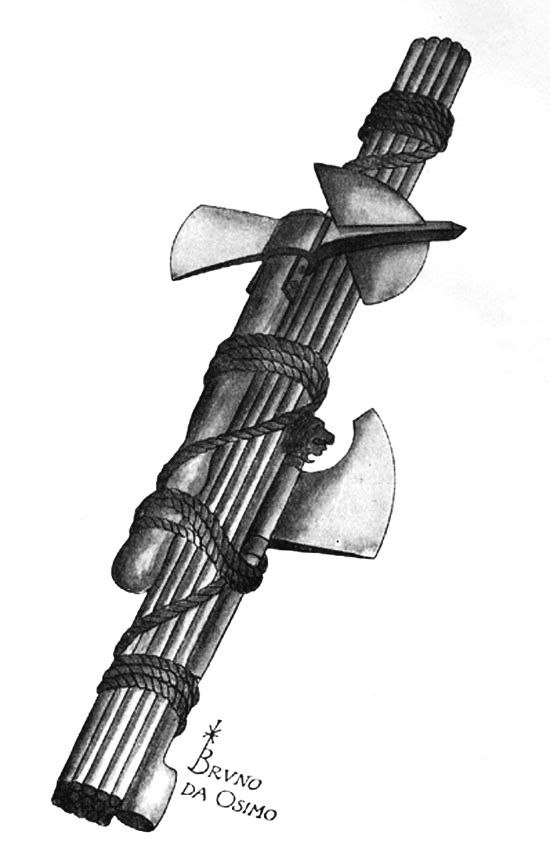
12 notes
·
View notes
Text
#OTD in 1926 – Dublin-born, Violet Albina Gibson, daughter of Lord Ashbourne, shot Benito Mussolini in Rome on this date.
Italian Fascist leader, Benito Mussolini, had just given a speech in Rome to the International Congress of Surgeons when a bullet nearly ended his life. After Mussolini finished his speech praising modern medicine, he walked to his car. At the time, no one noticed Violet Gibson, a small Irish woman with a long history of mental illness, standing among the crowd, just feet from Mussolini.
Once…

View On WordPress
#Assassination Attempt#Benito Mussolini#Britain#Dublin#Giovinezza#International Congress of Surgeons#Ireland#Irish-Italian History#Italian Fascist#Leader#Lord Ashbourne#National Fascist Party’s official hymn#Nose#Revolver#Shooting#Violet Albina Gibson
10 notes
·
View notes
Text
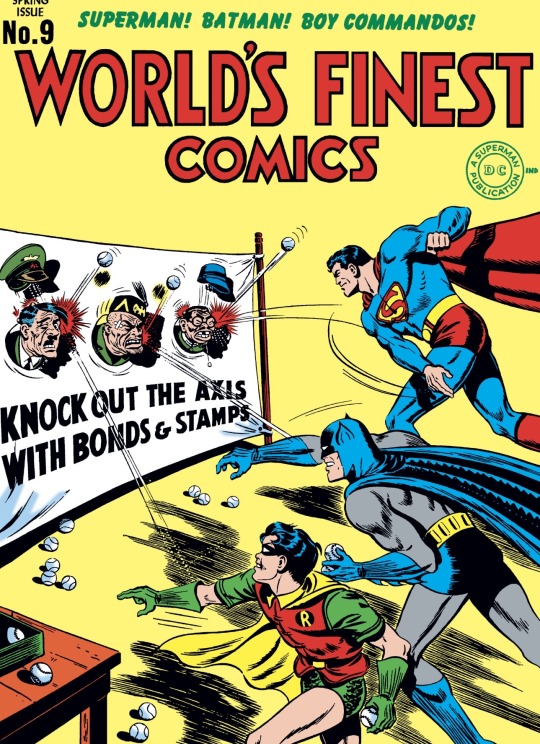
“Knockout”
Jack Burnley
#Superman#Batman#Robin#batman and robin#dick grayson#worlds finest#Adolf Hitler#Emporer Hirohito#Benito Mussolini#Jack Burnley#Hirohito
18 notes
·
View notes
Text

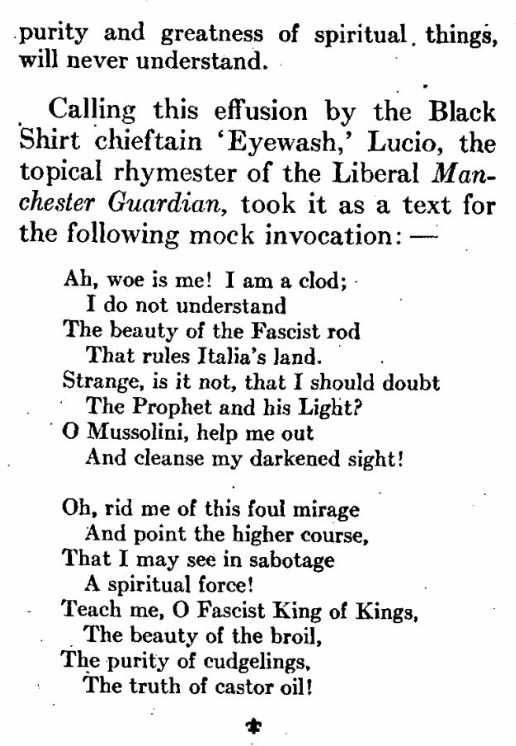
THE LIVING AGE, February 16, 1924
11 notes
·
View notes
Text

Adolf Hitler and Benito Mussolini in Munich, Germany, ca. June 1940.
#history#wwii history#german history#world war two#world war ii#wwii#ww2#austrian painter#benito Mussolini
13 notes
·
View notes
Text
i headcanon if bianca lived she'd be a bit of a mussolini apologist, at least for a while. because see - she grew up in ww2-era italy, with a LOT of propaganda (some of which was german-influenced). even at twelve, she wasn't going to be ignorant to the war, and i doubt the people she was around were particularly critical about it. then she ends up in the twenty-first century. it takes a while for anyone to realize her misconceptions re: world war two, and by the time they realize someone needs to set her straight, they're already at the point where the war happening now has to take precedence to the one that ended eighty years ago.
7 notes
·
View notes
Text

“Legionari di ieri e di oggi”, Ruggero Michaelles, 1935
11 notes
·
View notes
Text
“ Carismatico, coraggioso, indomito, Lussu è un figlio della Sardegna più profonda. Nato ad Armungia nel 1890, laureato in Giurisprudenza a Cagliari, amatissimo comandante della brigata Sassari (nella prima guerra mondiale ha ricevuto ben quattro medaglie dopo quattro anni di trincea per azioni sull’altipiano del Carso e della Bainsizza), ex deputato del Partito sardo d’azione, ha pagato cara, fin lì, la sua militanza, ma ha anche ottenuto una gran bella vittoria su un regime che sembra inattaccabile.
Capelli e occhi neri, slanciato, elegante, occhiali dalla montatura di metallo, baffi e pizzetto, sguardo ironico e tagliente, in quel periodo si fa chiamare ‘Mister Mill’ e vive in clandestinità. Agli occhi dei giovani dell’epoca, lo dice Joyce stessa, è un personaggio leggendario, per le gesta in Sardegna e per la sua avventurosa fuga da Lipari.
I fatti della Sardegna sono questi: la sera del primo novembre 1926, centinaia di fascisti hanno assediato la casa dell’avvocato Lussu. Non è un’azione isolata, è solo una delle rappresaglie che bande di fascisti organizzano in tutta Italia – devastando case, sedi di giornali, picchiando e assaltando – non appena si è diffusa la notizia dell’attentato fallito a Mussolini, avvenuto il giorno prima a Bologna per mano del sedicenne Anteo Zamboni. Lussu, che è un antifascista, ha partecipato alla secessione dell’Aventino dopo l’assassinio di Matteotti, è antimonarchico, ha lavorato a un progetto federalista-rivoluzionario per unire azionisti, repubblicani e socialisti, è nel mirino dei fascisti della sua città: l’ordine è di saccheggiarne la casa e linciarlo sul posto. L’organizzazione dell’assalto, nella sede del fascio, è durata tutta la giornata per cui c’è stato tempo e modo, per Lussu, di ricevere informazioni da voci amiche e preparare una reazione. Gli amici gli consigliano di scappare ma lui decide di restare in casa, situata nella piazza più centrale di Cagliari, lasciandola ben illuminata, «per dare un esempio di incitamento alla resistenza».
Scende in strada per vedere che succede, sente gli squilli di tromba che chiamano a raccolta i fascisti mentre la piazza si fa deserta. Risale, manda via la domestica. La città continua a serrarsi, i negozi abbassano le saracinesche, i cinema si svuotano. Al ristorante vicino casa dove va a pranzare, il cameriere – che è stato un suo soldato durante la guerra e ora è diventato fascista ma nutre ancora grande rispetto del capitano – lo scongiura di partire subito. La sentenza contro Lussu è stata emessa e lo sa tutta Cagliari. Persino gli inquilini del suo palazzo, tra cui un magistrato di Corte d’appello, si chiudono e tacciono terrorizzati.
«Incominciai a preparare la difesa. Un fucile da caccia, due pistole da guerra, munizioni sufficienti. Due mazze ferrate dell’esercito austriaco, trofei di guerra, pendevano al muro». Due giovani amici e compagni si presentano per aiutarlo ma lui li congeda senza discutere. Spegne la luce e si avvicina alla finestra. Assiste alla devastazione della sede della tipografia del giornale «Il Corriere» all’angolo, poi a quella dello studio dell’avvocato Angius.
Quindi risuona il grido «Abbasso Lussu! A morte!».
È sorpreso di riconoscere tra gli assalitori persone che conosce bene, di cui è stato amico o compagno di scuola.
La colonna si divide in tre parti e l’attacco arriva da tre punti: una squadra sfonda il portone e sale dalle scale, una cerca di entrare da un cortile sul retro, l’ultima si arrampica dai balconi. «Confesso che, nella mia vita, mi sono trovato in circostanze migliori. I clamori della piazza erano demoniaci. La massa incitava gli assalitori dalle finestre con tonalità di uragano».
Lussu lancia un primo avviso, grida «Sono armato!» da dietro le persiane.
Poi, mira e spara al primo che arriva sul balcone. Un giovane fascista, Battista Porrà, colpito a morte piomba giù, sul selciato della piazza. Gli altri scompaiono in un lampo.
Nonostante lo svolgimento dei fatti dimostri la legittima difesa (e infatti verrà assolto) e nonostante l’immunità parlamentare, Lussu viene portato in carcere. Ci vorrà un anno prima di arrivare a sentenza ma l’ordine di scarcerazione immediata è seguito da un ordine di domicilio coatto. Lussu è condannato alla pena di cinque anni di confino per misure di ordine pubblico e definito «avversario incorreggibile del regime». “
Silvia Ballestra, La Sibilla. Vita di Joyce Lussu, Laterza (collana I Robinson / Letture), 2022¹; pp. 31-33.
#Joyce Lussu#La Sibilla#letture#leggere#biografie#Cagliari#Joyce Salvadori Lussu#Silvia Ballestra#Storia del '900#Lipari#intellettuali italiani del XX secolo#antifascismo#lotta partigiana#prima guerra mondiale#Emilio Lussu#Armungia#Sardegna#Partito sardo d’azione#Bainsizza#Benito Mussolini#antifascisti#Anteo Zamboni#federalismo#squadrismo#Aventino#anni '20#Giacomo Matteotti#Giustizia e Libertà#Resistenza#Carso
23 notes
·
View notes
Text

That Trump fascist meme reminded me of a World War II anti-fascist song featuring Donald (no relation) Duck.
youtube
It would be cool if somebody skillfully re-wrote the lyrics for 2024. Of course the song would be called, "In The Donald's Face".
#the apprentice#donald trump#fascists#adolph hitler#benito mussolini#spike jones#in der fuehrer's face#election 2024#vote blue no matter who
11 notes
·
View notes
Text
Italian citizens when the cost of living doubles because the government decided to go to war Ethiopia for no reason

8 notes
·
View notes
Text
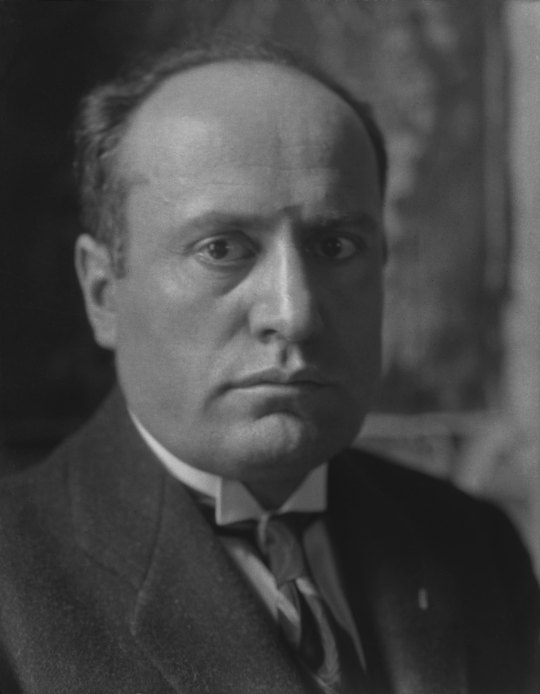
Benito Mussolini, Dictator, 1924.
©E.O. Hoppé Estate Collection.
5 notes
·
View notes
Text
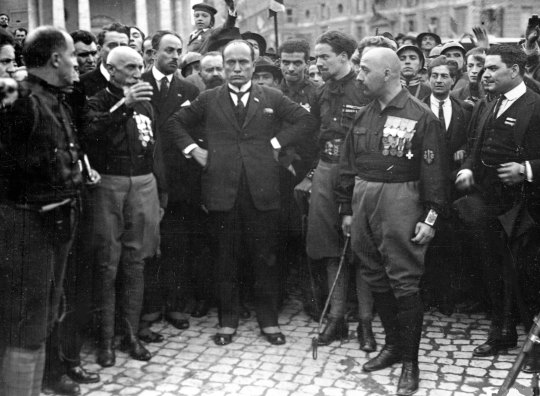
Benito Mussolini avec Emilio De Bono, Italo Balbo, et Cesare Maria De Vecchi pendant le congrès fasciste de Naples avant la marche sur Rome – Naples – Italie – 24 octobre 1922
Le 24 octobre, au congrès de Naples, Mussolini prononce un discours devant un défilé de 40 000 chemises noires. Il lance à ses troupes 'Ou ils nous donnent le gouvernement, ou nous le prenons en allant à Rome !' La marche sur Rome commencera le 27 octobre 1922.
#avant-guerre#pre-war#fascisme#fascism#marche sur rome#march on rome#benito mussolini#emilio de bono#italo balbo#cesare maria de vecchi#naples#italie#italy#24/10/1922#10/1922#1922
14 notes
·
View notes
Text
Poll: Benito Mussolini vs the Blue Meanie


19 notes
·
View notes